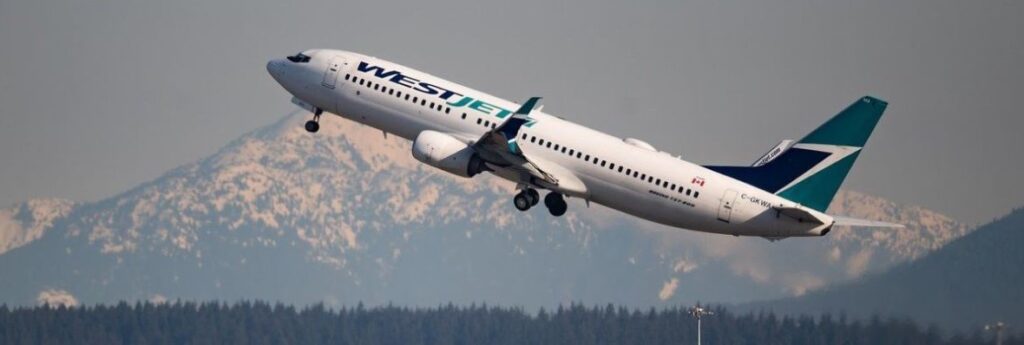A mixed reaction from Canadians has greeted the launch of WestJet’s on-board Wi-Fi service powered by Starlink – the satellite internet technology made by Elon Musk’s rocket company, SpaceX. Activated in March, the service now offers free Wi-Fi on 16 of the carrier’s nearly 140 planes, with the airline expecting to complete hardware installations on its narrow-body fleet by the end of this year and on its wide-body aircraft before 2027.
However, the higher-speed connectivity comes alongside growing controversy around Musk, thanks to his close ties to U.S. President Donald Trump as well as recent expressions of support for far-right groups.
Amid a surge in Canadian patriotism following threats to the country’s economy and sovereignty from the White House, some have called out WestJet and demanded it roll back its Wi-Fi plans.
“Sorry, @WestJet, I don’t want to fly in a plane that’s wrapped in the loving arms of Starlink,” said novelist Jeffrey Luscombe in a post on social media platform X, formerly known as Twitter – currently owned by Musk.
However, others said they were “thrilled” about the faster internet speeds or pointed to the apparent contradiction of using a Musk-owned service to criticize WestJet for using another Musk-owned service.
Major carriers including United Airlines and Air France have partnered with Starlink, while more than half of Canada’s provincial and territorial governments buy critical internet and emergency communications services from it.
The reliance on a Musk-owned enterprise has prompted unease in communities stretching from Ontario to the North.
“How much are we going to be dependent on this foreign company that has (the) ability to change its level of service, or turn it off if they get mad?” Jesse Fiddler, director at KNet, an Indigenous-owned company that offers internet and cellular service to more than 26 First Nations in northwestern Ontario, asked in an interview.
Earlier in March, Ontario Premier Doug Ford responded to U.S. tariffs by scrapping the province’s contract with Starlink. The Northwest Territories is also “exploring alternatives to Starlink” as part of a Team Canada approach to protect the country’s “economic resilience, sovereignty and security,” a government spokesperson said in an email.
WestJet said it chose Starlink in a multi-year agreement between the two parties and Telus that was announced last July after a competitive bidding process that began in 2023.
“Notably, we selected the vendor that offers the best guest experience,” an airline spokesperson said. “WestJet Wi-Fi will soon deliver enough bandwidth for everyone on board to use their device like they would on the ground to stream content, play online games and more.”
Starlink flies more than 7,000 satellites that serve about five million subscribers, with Canada as the company’s largest market outside of the United States.
If this article was shared with you by a friend or colleague, you may enjoy receiving your own copy of Travel Industry Today with the latest travel news and reviews each weekday morning. It’s absolutely free – just CLICK HERE.

